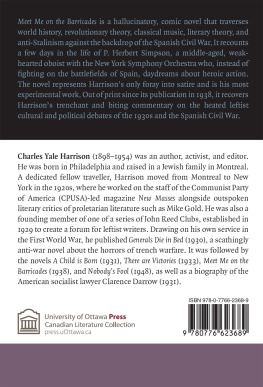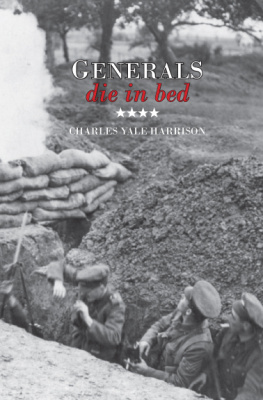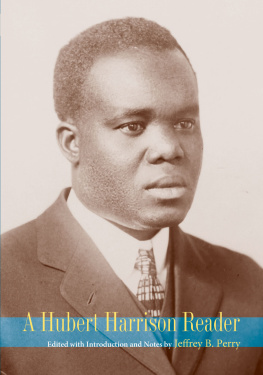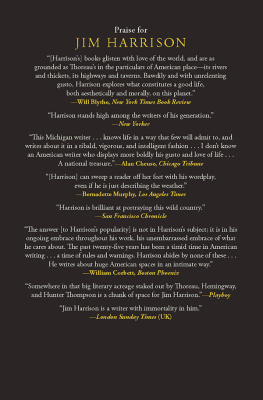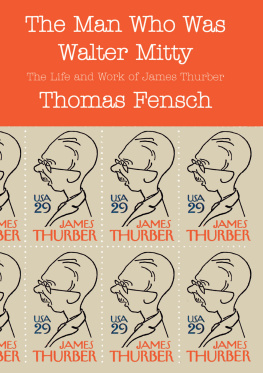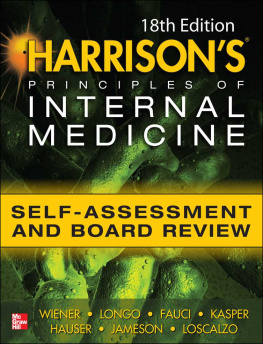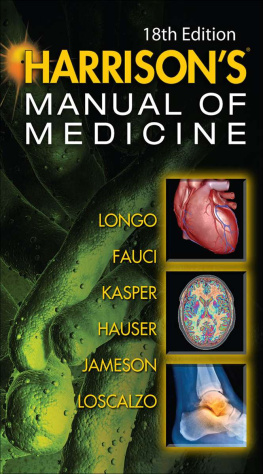The University of Ottawa Press gratefully acknowledges the support extended to its publishing list by the Government of Canada, the Canada Council for the Arts, and the Ontario Arts Council. This book has been published with the help of a grant from the Federation for the Humanities and Social Sciences, through the Awards to Scholarly Publications Program, using funds provided by the Social Sciences and Humanities Research Council of Canada.
Copy editing: Michael Waldin
Proofreading: Robbie McCaw
Typesetting: CS
Cover design: discript
Cover image: Portrait in the Evening by Pegi Nicol MacLeod (1926)
Reproduced with kind permission from the National Gallery of Canada
Library and Archives Canada Cataloguing in Publication
Harrison, Charles Yale, 1898-1954, author
Meet me on the barricades / by Charles Yale Harrison ; Bart Vautour and Emily Robins Sharpe, editors. -- A critical edition.
(Canadian literature collection)
Includes bibliographical references.
Issued in print and electronic formats.
ISBN 978-0-7766-2368-9 (paperback).--ISBN 978-0-7766-2369-6 (pdf).-
ISBN 978-0-7766-2370-2 (epub).--ISBN 978-0-7766-2371-9 (mobi)
I. Vautour, Bart, 1981-, editor II. Robins Sharpe, Emily, 1983-, editor III. Title. IV. Series: Canadian literature collection
| PS8515.A7896M43 2016 | C813.52 | C2016-902800-3 |
| C2016-902801-1 |
University of Ottawa Press, 2016
Printed in Canada by Gauvin Press
Contents
.
.
Introducing
Canada and the Spanish Civil War
Meet Me on the Barricades marks the third publication in a sub-series of the University of Ottawa Presss Canadian Literature Collection. The sub-series is comprised of Canadian-affiliated texts in which the Spanish Civil War features prominently. These print publications emerge out of a larger scholarly and public project dedicated to the exploration of Canadian involvement in the Spanish Civil War. For more information, visit spanishcivilwar.ca
BART VAUTOUR and EMILY ROBINS SHARPE
Co-directors of Canada and the Spanish Civil War
W e have received extensive help and encouragement throughout the process of bringing Charles Yale Harrisons novel back into print. In particular, wed like to thank Ryan van den Berg, Kevin Levangie, and Daniel Marcotte, who each contributed to the books preparation during their separate Canada and the Spanish Civil War internships. Pamela Russs meticulous Yiddish translations opened up new perspectives on the reception of Meet Me on the Barricades in the Yiddish press. Wed like to thank Kaarina Mikalson, our project manager, for all the contributions she makes that help to revivify the important issues of the Spanish Civil War. We would additionally like to thank Emily Wojcik and Michael Thurston for their encouragement, as well as all our colleagues in the Editing Modernism in Canada project. We are also grateful to the staff of Columbia Universitys Rare Book and Manuscript Library for their research assistance. We would like to acknowledge the Social Sciences and Humanities Research Council of Canada for their support of our project. The fine editors at University of Ottawa Press have been eager and supportive of this book, as well as our series, and for that they deserve many thanks.
A short piece drawn from the introduction first appeared in the Massachusetts Review as Imagining Spain: Charles Yale Harrisons Meet Me on the Barricades (volume 5, issue 2, summer 2014).
EMILY ROBINS SHARPE AND BART VAUTOUR
B y the late 1930s much of the world had experienced nearly a decade of the Great Depression. Political and cultural lives in the Western world were becoming increasingly difficult to navigate. The decade is often characterized by its markedly deep divide between the political left and the political right, between democracy and fascism, and between working and elite classes. Alongside world historical events, the strategies and tactics of political and cultural organization were in constant flux. Intimately wrapped up in that flux, Charles Yale Harrison played a prominent role as what we might call a cultural politician. He was a journalist, political organizer, researcher, literary critic, and novelist who performed his cultural work in publicin the pages of the popular, working-class, and leftist press. From a biography of a leading social-activist lawyer to pamphlets on public housing, his writing covered diverse genres.
Harrison, in many ways, was a maverick. Once social or political thought became conventional, he didnt want any part of it. After having experienced the trenches of the First World War, he took a vehemently anti-war stance in much of his writing, where he sought to expose the real, material conditions and consequences of what he saw as bureaucratic violence. So, when a group of fascists led by Francisco Franco attempted a coup dtat in 1936 in the recently formed Spanish Republic, Harrison took particular notice. The coup failed, but a civil war started between the democratically elected Spanish Republican government and the fascist Falange (often referred to as the Nationalists). For Harrison, a dilemma emerged: How could he maintain a critique of war while at the same time supporting the anti-fascist cause? With Meet Me on the Barricades, Harrison represents this predicament in the form of an evocative satire that exposes the complications and contradictions between political imagination on the one hand, and the realities of war and power-hungry exploitation on the other. In personal letters and public interviews, Harrison described his motivations for crafting a humourous narrativeand an ineffectual anti-heroto represent such a grave and immediate subject as the war in Spain. For instance, in a letter to the socialist leader James P. Cannon, Harrison wrote, For several years, ever since the Stalinist betrayal of the revolution became manifest to me, I wanted to appeal to the liberal intellectuals and their followers (and they are legion, I assure you) and expose the nature of the sell-out (17 Jan. 1938, Charles Yale Harrison Papers [CYHP], box 1). In a radio interview with Johannes Steel, Harrison describes how the book began
as a light, satirical, amusing political fantasy. But gradually as it got under way I realized that I had in my little oboistmy hero plays the oboemore than a casual character. He is, I think, a universal type. Hes the little fellow who reads the news of the day and is terribly put out about it. To him a Loyalist defeat in Spain is a personal tragedy. He wants to fight, but in real life he is a meek, pathetic little person who can only express his social aspirations and ideals in terms of the daydream. (WMCA, 1 April [1938], CYHP, box 8, file Misc. Editorial, Letter to Editor, Interview)
Harrisons comment insightfully characterizes the pitfalls of over identification when real issues are at hand: his novels protagonist does not translate his strong moral feelings into action, and so remains not only passive but also aloof from the tragedy of Spains war. In articulating the evolution of his light, satirical, amusing political fantasy into a more trenchant critique of how many real people live their lives, Harrison turns a critical lens on his own societys sentimentalization of war. This interview and

